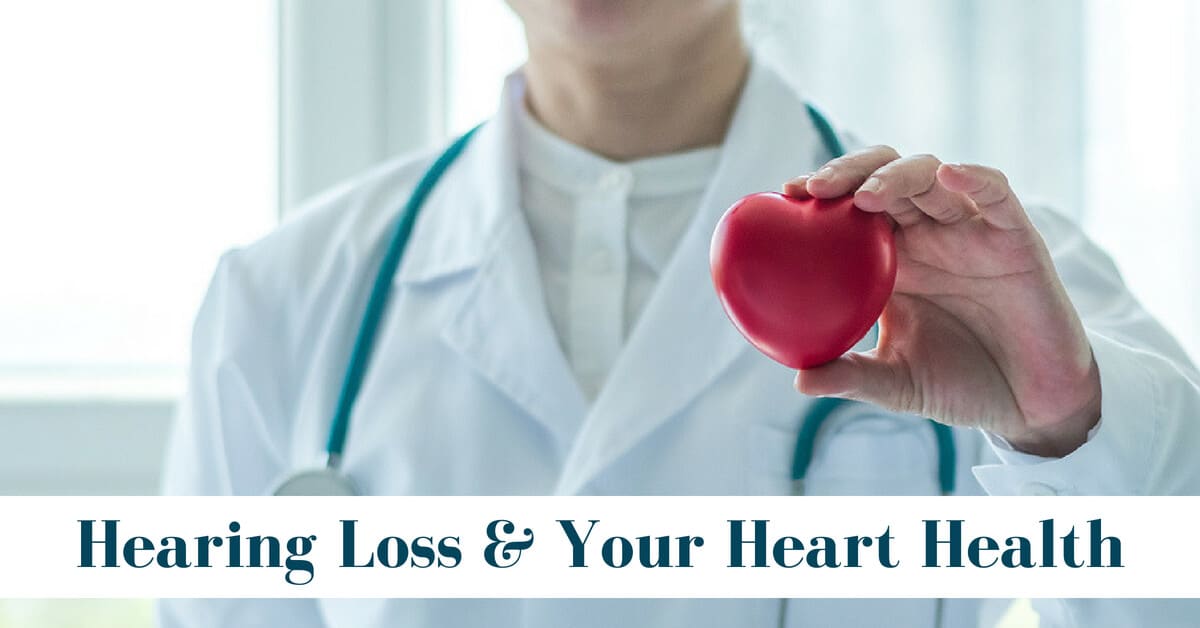Contrary to popular understanding, heart disease is currently the number one killer of both men and women – claiming about 610,000 American lives per year – which equates to about 1 out of every 4 adult deaths. On average, heart disease claims about one life per minute in the United States.
These statistics are surely scary, and it is paramount we all take every step and action possible to help protect ourselves and those we love from developing heart disease. There are many things we can do to help keep our hearts healthy, including eating a proper diet, quitting smoking, and increasing our exercise. Did you know, however, that heart health is also closely related to other medical conditions – including hearing health?
Heart Health is Connected to Hearing Loss
The main reason these two conditions are connected is due to circulation. In order for our ears and hearing to work properly, we need to ensure proper blood flow to the blood vessels in our inner ears. This blood flow helps our delicate inner ear hair cells to intake noise and transmit these noises into electric signals that can be sent to our brain for processing. When circulation to our ears is compromised, this whole process can be damaged. Poor circulation not only keeps our hair cells from being able to do their jobs, it also robs them of their oxygen. Without proper oxygen our hair cells become damaged and eventually die and because they do not regenerate – this can cause irreversible hearing loss.
A well-known study published in the American Journal of Audiology confirmed that auditory systems were negatively affected by poor cardiovascular health, and the issue was specifically present in older adults.
Hearing Loss and Other Health Conditions
Hearing loss is not only connected to the number one killer of both men and women – heart disease – but also many other impairments as well. Those with untreated hearing loss have been found to be more likely develop emotional impairments such as social isolation, depression and anxiety. Hearing loss is also connected to mental concerns such as an increased risk for developing delirium and dementia. On top of mental and emotional concerns, physical impairments are also more likely for those with hearing loss, including an increased risk for harmful falls and diabetes.
The Importance of Hearing Assessments
Because hearing loss is so closely correlated with an increased risk for heart disease as well as a myriad of other health issues – it is paramount we all assess our hearing on a regular basis. It is recommended that adults begin scheduling yearly hearing assessments beginning at age 65, however, hearing tests should be scheduled at the first sign of hearing loss. With a simple, quick and painless assessment, we will have a complete picture of your hearing profile and your areas of strength and need. For most of the comorbidities associated with hearing loss, the risk is significantly lessened by treating the hearing loss. Knowing your hearing health can also help you better understand your risk for other medical issues, so you are able to give your doctor a more complete picture of your overall health, and know what steps you can take to help protect your health – mind, body and heart.
How to Protect Against Heart Disease
Of course, a hearing assessment will help you better understand your health, but it is not a step against developing heart disease. It is important to know what you can do to help protect your heart.
- Manage Blood Pressure – It is important for adults to get regular checks of their blood pressure to ensure it is not too high. High blood pressure means your heart is exerting too much energy to pump blood throughout your body – which can obviously put a strain. Eating a diet low in sodium and high in potassium can help keep blood pressure in check.
- Manage Cholesterol – Cholesterol gets stuck in your arteries and causes them to become clogged. Clogged arteries cause an increased risk for artery disease and heart attack.
- Eat a Healthy Diet – Eating a healthy diet can help you to control both your blood pressure and your cholesterol levels. It is important to include lots of vegetables into your diet, especially leafy greens. Fruits are also high in antioxidants that are healthy for your system. It is important to reduce intake of animal fat and processed foods.
Desert Valley Audiology
Hearing health is an important part of your overall health and well-being. To schedule a hearing test and consultation, contact us at Desert Valley Audiology.

